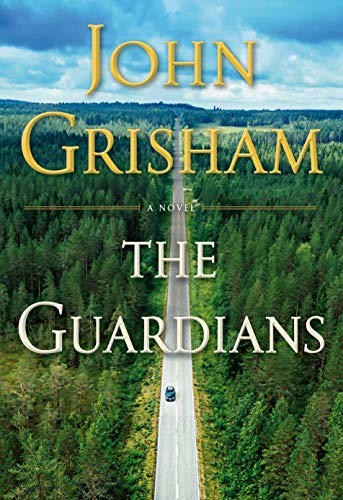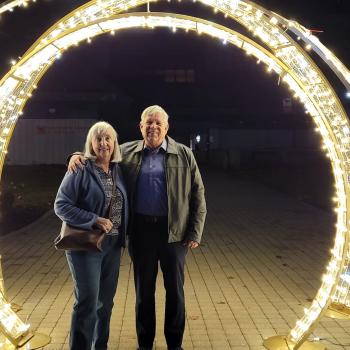John Grisham has now written some 33 novels. To say he is prolific is to say too little. This novel however bears more kinship with his non-fiction work entitled The Innocent Man a story about a man wrongfully condemned for a heinous crime he did not commit, and the work of the Innocence Project and other organizations to overturn such a mistaken judgment. This novel falls into the same sort of gestalt and sordid tale, and certainly does not inspire confidence in our criminal justice and juridical system, especially in the pre-DNA era. You can tell that Grisham quite rightly is not confident in the way the system works in the South when you are dealing with a poor person, particularly a poor black person who cannot afford good legal counsel and a good defense. There are indeed some counties in the South where 70% of the prison population are poor African Americans— and its not because that 10% of our general population is committing the vast majority of crimes.
And we could go on to talk about how if we compared our system of jurisprudence to the ancient Roman one which it is sometimes said to be partially modeled on, you will discover that the Romans did not consider prison a humane punishment, and did not use jails except as holding places until a trial and matter was resolved. And in fact, they preferred house arrest even then (see Acts 28 and Paul in Rome). Yes they had corporal and capital punishment, and financial penalties, and exile as their forms of rendering negative judgments. Not imprisonment. It makes one wonder why exactly we find it the most humane way to deal with crime, especially when testimony after testimony suggests that people actually become worse and more hardened criminals in jails! The notion that locking up a bunch of bad actors in the same space and hoping it will lead to their reform is mostly a pipe dream. What they actually most often learn is more ways to be criminals. John Grisham knows and exposes the flaws and fallacies in such a system. And yet we spend billions of dollars every single year on prisons and imprisonments. Here is the official summary of Grisham’s latest 370 some page novel—
“In the small Florida town of Seabrook, a young lawyer named Keith Russo was shot dead at his desk as he worked late one night. The killer left no clues. There were no witnesses, no one with a motive. But the police soon came to suspect Quincy Miller, a young black man who was once a client of Russo’s.
Quincy was tried, convicted, and sent to prison for life. For twenty-two years he languished in prison, maintaining his innocence. But no one was listening. He had no lawyer, no advocate on the outside. In desperation, he writes a letter to Guardian Ministries, a small nonprofit run by Cullen Post, a lawyer who is also an Episcopal minister.
Guardian accepts only a few innocence cases at a time. Cullen Post travels the country fighting wrongful convictions and taking on clients forgotten by the system. With Quincy Miller, though, he gets far more than he bargained for. Powerful, ruthless people murdered Keith Russo, and they do not want Quincy Miller exonerated.
They killed one lawyer twenty-two years ago, and they will kill another without a second thought.”
Can you imagine spending 23 years of your life in jail, for a serious crime you did not commit? Most of us can’t even imagine that happening, and some of us are under the illusion that the justice system gets it right in the vast majority of cases. That’s what you call blind faith, which is not the kind Grisham is advocating. He wants truth, transparency, expedition, and proper justice with mercy done. He’s not a bleeding heart liberal who thinks crime should not be prosecuted and judgment rendered. Rather he is a compassionate Christian with legal expertise.
There are several aspects of this novel worth talking about. For one thing, it unveils the tireless work of things like the Innocence Project and various mercy ministry that try hard on limited budgets to right the courts wrongful convictions. This alone makes the novel worth reading. The Jesus who balanced justice and mercy and said ‘neither do I condemn you but go and sin no more’ would approve their efforts. Secondly, the novel peals back the veil of the drug cartels operating in Florida and elsewhere and the need to deal with them more systematically and completely. Americans themselves, not foreign bad actors, are the ultimate source of this problem. If Americans didn’t want and didn’t use lots of different kinds of drugs, many of them deadly and illegal, we would not have this problem. As Pogo once said ‘I have seen the enemy, the enemy is us’. The source of the problem is the human heart of Americans and their endless cravings of various sorts.
The third thing about this novel that is enlightening is understanding the tiered system of the law, and how it works differently at the local, at the state, and at the national level. I can only say thank God for the FBI and federal officials who can intervene anywhere when counties and states refuse to take action or are part of the problem.
I enjoyed this novel, its a return to form, though not as good as Sycamore Row of the more recent Grisham ouevre. Grisham has carved out a niche with legal thrillers (write about what you know!) and he’s good at it. And I appreciate his positive approach to Christians and various sorts of compassion ministries. He’s not as a good a thriller writer as some of the Brits (say P.D. James, or Ian Rankin) but his take on things involves a more Christian and Biblical worldview than most. Well done.
















